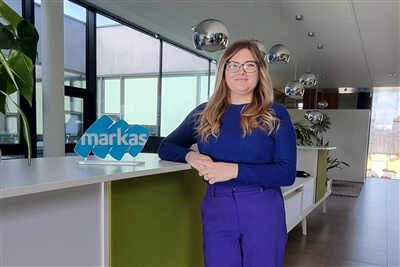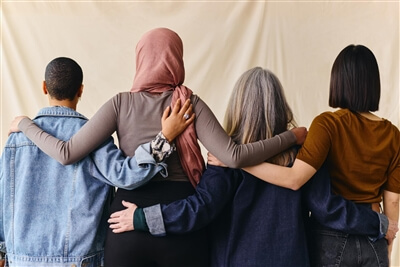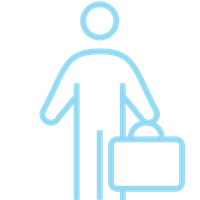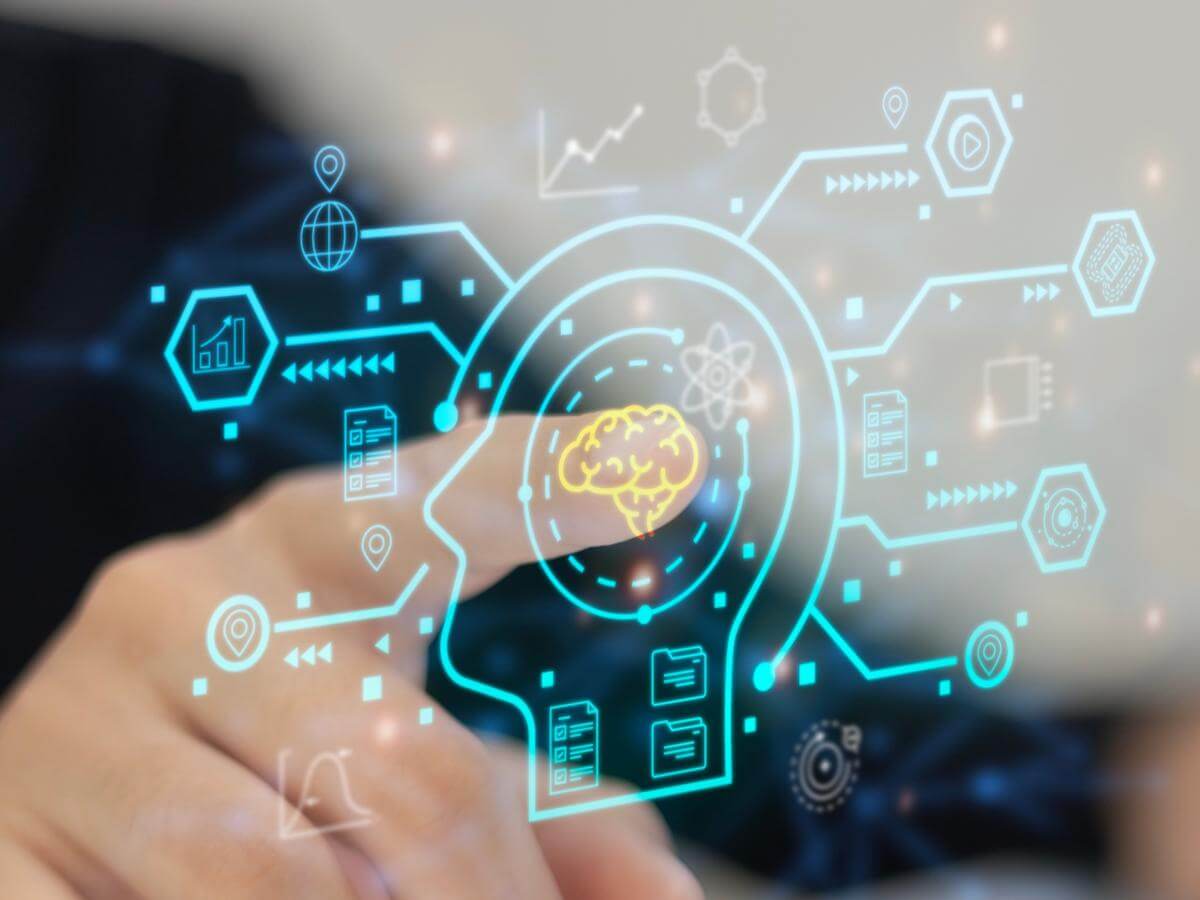Diversity, bias and the future: an honest conversation with Markas’ Diversity & Inclusion Officer
In today’s world what is the real meaning of diversity and how can it impact businesses and their employees? Markas’ Diversity & Inclusion Officer, Enikö Hazafi, shares her thoughts and highlights the importance of cultivating an inclusive environment.
What does diversity mean to you?
To me, diversity is about bringing together different potentials, making a positive impact on people’s lives, and creating a unique mix of perspectives that strengthens our organization.
Having the opportunity to make a real difference in someone's life through my work as an Inclusion and Diversity Officer is what really motivates me. For instance, helping a person with a disability secure a position at Markas, and witnessing their joy and renewed sense of purpose, is incredibly rewarding.
Diversity is about celebrating uniqueness as well as identifying individuals' strengths and finding them a perfect fit within the company, which sometimes requires shifting roles to better align with their skills. This not only helps the individual thrive but also enhances an organization’s overall efficiency.
At Markas, we leverage this potential, overcoming challenges and enriching our corporate culture through diversity.
What does diversity mean to you?
To me, diversity is about bringing together different potentials, making a positive impact on people’s lives, and creating a unique mix of perspectives that strengthens our organization.
Having the opportunity to make a real difference in someone's life through my work as an Inclusion and Diversity Officer is what really motivates me. For instance, helping a person with a disability secure a position at Markas, and witnessing their joy and renewed sense of purpose, is incredibly rewarding.
Diversity is about celebrating uniqueness as well as identifying individuals' strengths and finding them a perfect fit within the company, which sometimes requires shifting roles to better align with their skills. This not only helps the individual thrive but also enhances an organization’s overall efficiency.
At Markas, we leverage this potential, overcoming challenges and enriching our corporate culture through diversity.

How can companies foster diversity in the workplace?
First of all, diversity and inclusion should start from the top because these are much more than buzzwords or just policies; they're a mindset.
So having the support of senior management teams is crucial in integrating diversity into core operational strategies. I'm fortunate to work with a management team that passionately supports diversity. From day one, they understood the immense value—both economic and personal—of fostering an inclusive environment.
Then, it’s all about listening and responding to employees' needs. It's a dynamic, two-way relationship where mutual support is essential. Developing such a culture requires time and thoughtful consideration ensuring that individuals are in roles that not only fit their abilities but also their personal circumstances.
For instance, we noticed that many of our female employees in Austria, who were a perfect fit for the role, faced challenges working weekdays due to childcare responsibilities. In response, we adapted by offering weekend work options. This flexibility not only enables them to work and earn but also to spend valuable time with their families during the week. In the blue-collar sector, this is achievable thanks to our managers' commitment, rather than a company-imposed policy.
At a company like Markas, with 12,000 employees, how do you actually manage to promote diversity and inclusion?
At Markas, with a diverse workforce drawn from over 90 countries, promoting diversity and inclusion is a multifaceted endeavour rooted in a deep understanding and respect for varied cultural backgrounds.
Our approach encompasses raising awareness about different cultures, traditions, and celebrations. For instance, during Islamic holidays, we encourage non-Muslim employees to volunteer for shifts, allowing Muslim colleagues to observe their religious practices and vice versa. We also ensure cultural sensitivity in our social events and office celebrations, like providing inclusive food options that cater to different dietary needs and religious practices.
Language inclusivity is also vital, and we support this through organized German language courses, helping non-native speakers better integrate both within the company and the wider community.
But beyond traditional demographic diversity, we also address less visible aspects such as LGBTQ+ diversity, advocating for an open environment regardless of gender orientation.
Age diversity is another critical yet often overlooked aspect of workplace inclusion. While the majority of our employees are between the ages of 30 and 45, we are committed to supporting staff across all age groups. Given that some roles within our sector are physically demanding, we prioritize the health and fitness of our employees to ensure they can continue their careers as they age. This includes the development and use of ergonomic tools and a focus on optimizing our health and safety processes.
First of all, diversity and inclusion should start from the top because these are much more than buzzwords or just policies; they're a mindset.
So having the support of senior management teams is crucial in integrating diversity into core operational strategies. I'm fortunate to work with a management team that passionately supports diversity. From day one, they understood the immense value—both economic and personal—of fostering an inclusive environment.
Then, it’s all about listening and responding to employees' needs. It's a dynamic, two-way relationship where mutual support is essential. Developing such a culture requires time and thoughtful consideration ensuring that individuals are in roles that not only fit their abilities but also their personal circumstances.
For instance, we noticed that many of our female employees in Austria, who were a perfect fit for the role, faced challenges working weekdays due to childcare responsibilities. In response, we adapted by offering weekend work options. This flexibility not only enables them to work and earn but also to spend valuable time with their families during the week. In the blue-collar sector, this is achievable thanks to our managers' commitment, rather than a company-imposed policy.
At a company like Markas, with 12,000 employees, how do you actually manage to promote diversity and inclusion?
At Markas, with a diverse workforce drawn from over 90 countries, promoting diversity and inclusion is a multifaceted endeavour rooted in a deep understanding and respect for varied cultural backgrounds.
Our approach encompasses raising awareness about different cultures, traditions, and celebrations. For instance, during Islamic holidays, we encourage non-Muslim employees to volunteer for shifts, allowing Muslim colleagues to observe their religious practices and vice versa. We also ensure cultural sensitivity in our social events and office celebrations, like providing inclusive food options that cater to different dietary needs and religious practices.
Language inclusivity is also vital, and we support this through organized German language courses, helping non-native speakers better integrate both within the company and the wider community.
But beyond traditional demographic diversity, we also address less visible aspects such as LGBTQ+ diversity, advocating for an open environment regardless of gender orientation.
Age diversity is another critical yet often overlooked aspect of workplace inclusion. While the majority of our employees are between the ages of 30 and 45, we are committed to supporting staff across all age groups. Given that some roles within our sector are physically demanding, we prioritize the health and fitness of our employees to ensure they can continue their careers as they age. This includes the development and use of ergonomic tools and a focus on optimizing our health and safety processes.

How can we better address micro-aggressions and bias in the workplace?
Firstly, it's crucial to be more aware about biases as they are often deeply ingrained in our subconscious, making them difficult to recognize.
To effectively combat unconscious biases, it’s crucial to highlight positive role models and real-life examples that showcase the strengths and contributions of diverse individuals. These strengths are not tied to one's gender, nationality, or other personal attributes.
For instance, in recruitment I like the idea of using anonymous applications. This method prevents recruiters from forming preconceived notions based on a candidate's personal details. Additionally, having recruiters from varied backgrounds, cultures, ages, and languages can greatly enhance the diversity and inclusivity of hiring practices, especially in international companies.
Firstly, it's crucial to be more aware about biases as they are often deeply ingrained in our subconscious, making them difficult to recognize.
To effectively combat unconscious biases, it’s crucial to highlight positive role models and real-life examples that showcase the strengths and contributions of diverse individuals. These strengths are not tied to one's gender, nationality, or other personal attributes.
For instance, in recruitment I like the idea of using anonymous applications. This method prevents recruiters from forming preconceived notions based on a candidate's personal details. Additionally, having recruiters from varied backgrounds, cultures, ages, and languages can greatly enhance the diversity and inclusivity of hiring practices, especially in international companies.

Looking ahead, what significant key trends or changes do you think will transform diversity and inclusion in the near future?
There's still a prevalent notion among many companies or people out there that diversity is optional. So I think that in the coming years more and more organizations will realise that diversity isn’t optional or it isn’t simply about achieving certifications but about making genuine, meaningful progress. So I expect that diversity will be integrated into every facet of business operations, not confined to HR but embraced as a core aspect of each company's strategy and culture.
Also, I hope that gender inequalities will be addressed more effectively and that greater and more meaningful job opportunities will be created for both the elderly and the youth.
Rather than focusing solely on hierarchical career progress, I think there will be more meaningful career paths that value horizontal development, where people will be encouraged to pursue areas they are passionate about. In this way they will be able to truly make a difference regardless of their age, background or cultural identity.
In other words, I believe 'meaningful' should be the keyword that defines a future approach to diversity and inclusion.
There's still a prevalent notion among many companies or people out there that diversity is optional. So I think that in the coming years more and more organizations will realise that diversity isn’t optional or it isn’t simply about achieving certifications but about making genuine, meaningful progress. So I expect that diversity will be integrated into every facet of business operations, not confined to HR but embraced as a core aspect of each company's strategy and culture.
Also, I hope that gender inequalities will be addressed more effectively and that greater and more meaningful job opportunities will be created for both the elderly and the youth.
Rather than focusing solely on hierarchical career progress, I think there will be more meaningful career paths that value horizontal development, where people will be encouraged to pursue areas they are passionate about. In this way they will be able to truly make a difference regardless of their age, background or cultural identity.
In other words, I believe 'meaningful' should be the keyword that defines a future approach to diversity and inclusion.
ARTICLES YOU MAY LIKE







